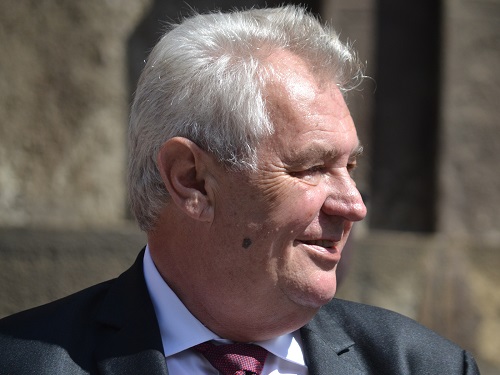
In an election that CNN named “one to watch,” Czech voters re-elected a president Western media outlets have dubbed “the European Trump.” The vote could have ramifications for EU integration, Muslim migration to Europe, and the pilfered property of the Christian Church.
Miloš Zeman edged out his more Eurocentric opponent, Jiří Drahoš, a political novice, on Saturday, by 51-49 percent. Zeman’s modestly skeptical view of the EU is underlined by his support for Russia and, to a lesser degree, China. Elected in 2013, the septuagenarian is an outspoken critic of the media, ferocious toward his political enemies, and implacably opposed to the resettling of Muslim migrants within his borders.
Already, embattled Prime Minister Andrej Babiš is reassuring the EU that his government would oppose a Czech referendum on EU membership – provided Babiš is able to form a coalition.
Zeman’s victory can be chalked up to his uncompromising position on immigration, according to Michal Hejl, a political and economic analyst at the Centre for Economic and Market Analyses (CETA) in Prague. “He is resolutely against the EU’s quota program for accepting Middle Eastern migrants, or accepting any large number of immigrants from Muslim countries,” writes Hejl in a new essay at Acton’s Religion & Liberty Transatlantic website. That position, popular throughout Visegrád states, sealed his victory.
However, Zeman’s second – and, under the Czech Republic’s constitution, last – term as president may have repercussions for Christians seeking the restitution of Church property confiscated by the Communists. Hejl writes:
Zeman has a convoluted relationship with the Roman Catholic Church. On one hand, he is very friendly with the primate of Bohemia, Cardinal Dominik Duka (whom some clerics have criticised for his fawning attitude towards the Czech president) and some other prelates. On the other, he supports a review of the restitution program and has called it too generous. That policy vowed to return to churches the property stolen by the Communist regime or annual reimbursement payments for properties that could not be returned. This restitution has been criticised from two angles. One is traditional hatred of churches in general stemming from the Marxist era; the second claims that the churches are receiving too much money. Some of the parliamentary parties are suggesting that the yearly sum (which is time limited) should be taxed. This is likely unconstitutional, since it would mean breaking an agreement which the state has signed. However, it would be popular in some quarters….
(Photo credit: DavidSedlecký. This photo has been cropped. CC BY-SA 4.0.)

